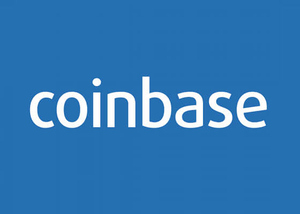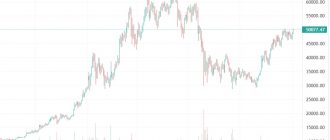The development of cryptocurrency has brought a rush of wealth and investment opportunities that rivaled that of the gold rush and oil boom. The crypto market is a gold mine filled with a helluva lot of untapped potential. Little wonder investors discover newer and easier ways to create wealth, and fortune through cryptocurrency and its related services, every day.
Crypto exchanges and brokerages are familiar names in the cryptocurrency niche. Exchanges are platforms that give users a safe environment to trade in cryptocurrencies and fiat currencies.
A beginner may want to pay rapt attention here because every trader needs to use one exchange or another to place their trades. However, we deem it fit to bring the new trader up to speed with specific terms involved in cryptocurrency trading. An experienced trader may decide to read or skip this section all the same.
Terms involved in cryptocurrency exchange
Orders
These are requests by investors to make trades on authorized cryptocurrency exchange platforms. These may be requests to either purchase or sell a particular crypto asset.
There are two basic types of orders. Each allows investors to execute trades using different trading strategies according to their needs. The two types of orders are the market order and the limit order.
Market orders
Herein, the investor requests their broker (the cryptocurrency exchange service) to buy or sell a particular digital currency at the best available market price.
Pros
- It allows investors to make trades much more quickly
- It is excellent if you’re buying large-cap liquid assets
- It is the most reliable way to enter and exit a trade quickly
Cons
- You lose the advantage of using the bid-ask spread during the trade
- The prices may fluctuate widely on thinly traded stock
- Thinly traded stock may be filled up slowly
Limit orders
A limit order means that the investor authorized their broker to buy or sell a particular cryptocurrency only when it reaches a specific price. Unlike market orders, the cost of the commodity is assured, but the filling is usually not guaranteed.
Pros
- Can be used with stop orders to prevent significant downside losses
- Allows investors to dictate their prices
Cons
- Investors may miss out on substantial sales opportunities
- The order may not be filled
Ask
The ask is also known as the offer price. The amount of money a seller is willing to accept for a particular security and asset is, in this case, a cryptocurrency. It is always higher than the bid (how much the buyer is willing to pay for protection).
An ask quote typically includes both the price and amount of the commodity the seller wishes to trade.
Bid
A bid refers to how much a buyer is willing to pay to purchase particular security, in this case, a cryptocurrency. The bid is always lower than the asking price (how much the seller wishes to sell the security).
Spread
This refers to the difference between the asking price and the bid. It is an excellent indicator of the demand and supply of that particular commodity.
The higher the interest in a cryptocurrency, the more competitive the bidding and asking price. This leads to a narrow spread as sellers try to sell at more competitive prices and bidders attempt to outbid one another.
Transaction fees
These are the fees charged by the exchange platform for each user to use their services to buy or sell a commodity. Some exchanges have a standard transaction fee, while others modify their charge depending on the traded cryptocurrency.
Currency conversion fees
Most cryptocurrency exchange platforms deal in multiple coins, even though Bitcoin is by far the most popular. However, if users need to make transactions in other cryptocurrencies, that means they need a way to convert their current crypto asset to another.
Most cryptocurrency exchanges offer this service but take a small percentage called the currency conversion fee.
Fund transfer fees
Most cryptocurrency exchanges charge a small token for any deposits or withdrawals made on their platform. The amount charged by the different platforms is dependent on the channel through which the transaction is made.
The commonly accepted methods of making payments across different exchanges are wire transfer, debit cards, credit cards, or e-wallets.
Now those terms seem challenging to know by heart. Don’t fret. Every experienced trader felt the same way at a time. So, you are not alone in this journey. With practice, you will get to understand the jargon and how they are used.
After laying the foundation, it is time to brace up and dive deeper into the topic. Our first stop is the meaning of exchange itself.
What is a cryptocurrency exchange?
A cryptocurrency exchange is also known as digital currency exchange (DCE. The platform allows users to trade cryptocurrencies for other assets like cryptocurrencies or fiat currencies (USD, CHF, YEN, EUR, CAD, AUD, AUX).
An exchange acts as an intermediary between a buyer (also called a taker) and a seller (called a maker). Cryptocurrencies such as Bitcoin, Ethereum, Ripple, Bitcoin Lite, and so on, operate just like any other commodity on the market. The demand and supply determine the value and amount that people are willing to pay for the commodity.
How does buying and selling on a cryptocurrency exchange work?
Transaction requests on an exchange are called orders. An order is an investor’s request to the exchange service to buy or sell a particular cryptocurrency using its platform.
So once an investor fills out an order (market order or limit order), the transaction is carried out by the exchange platform by finding a potential buyer or seller interested in making the trade.
The exchange service then collects commission charges for every trade that is facilitated through their platform. The fees can range from 0.10% to 2.5% and more, depending on the platform or commodity being traded.
Types of exchange services
Centralized cryptocurrency exchange (CEX)
This is closer to the traditional idea of exchange service. Here, the cryptocurrency exchange is controlled by a company or central organization. They allow users to trade cryptocurrencies for other cryptocurrencies or fiat currencies.
Pros
- It offers high trade volumes when compared to decentralized exchanges
- Provides higher liquidity than centralized exchanges
- Has a large number of buyers and sellers
- Allows fiat-to-crypto currency trades
- High functionality
Cons
- More vulnerable to hacks when compared with decentralized exchanges because the coins are stored in the exchange’s wallet
- Users have no control over the cryptocurrency assets
- Under governmental regulations (can be shut down anytime without notification)
- Slower withdrawal time than decentralized exchanges
- Centrally governed
Decentralized cryptocurrency exchange (DEX)
A decentralized cryptocurrency exchange is a better alternative for a decentralized commodity such as cryptocurrency. In this situation, there is no centralized organization.
An automated system helps facilitate deals directly between customers, something called peer-to-peer or customer-to-customer trading.
Most decentralized exchanges operate by using Ethereum’s blockchain system to conduct services through the use of smart contracts. This allows them to connect trade orders, bringing buyers and sellers together.
Pros
- Offers high security from hacks owing to distributed nodes
- The government cannot shut down owing to distributed global nodes
- Users have full control over their cryptocurrency assets
- No central company
Cons
- Offers lower trade volumes compared to CEX
- Every transaction incurs a transaction fee
- All transactions are irreversible
- Can trade only one cryptocurrency
- Does not have high liquidity
- Currently only offers crypto-to-crypto trades
- Limited functionality
Hybrid cryptocurrency exchange
A hybrid cryptocurrency exchange is a combination of both centralized and decentralized exchanges. A hybrid exchange offers the trustless nature of decentralized exchanges combined with the low latency and fast transaction speeds of centralized platforms.
Like decentralized exchanges, a hybrid exchange adopts smart contracts to ensure that there is no central figure imposing on trade integrity. This reduces security risks and puts the safety of a customer’s assets onto a blockchain rather than relying on a company.
Pros
- Two-Factor Authentication is available for all users, adding to user security
- There is high security for user assets
- They accept fiat currencies as well as cryptocurrency
- Some exchanges offer many coins and token pairs for trading
- Protection against DDOS attacks.
Cons
- Low volume and liquidity
Instant exchange
This platform allows users to exchange one cryptocurrency for another. The main difference is that in this platform, you do not trade with another investor, but rather with the platform itself.
Exchanges like this have vast stores of cryptocurrency and allow users to quickly convert one coin to another for a fee, though their charges may be quite high compared to other exchanges.
Pros
- Fills order quickly
- Doesn’t store user funds on its platform
- Offers a wide range of different cryptocurrencies
Cons
- High charges
- specific pairs are not available because the exchange runs out of coins
- Small liquidity pool
Brokerage
A crypto brokerage is a select type of exchange platform. They work through a specialized dealer network to connect buyers and sellers who hold large pools of cryptocurrency and are interested in trading. This form of trading is called the over-the-counter (OTC) market.
Since it is a more personalized service, the transactions are typically more flexible and convenient for both parties. They usually handle larger trade volumes than regular cryptocurrency exchanges and are more tightly regulated.
Pros
- High trade volume
- Accepts fiat currencies as well as cryptocurrency
- High user security and strict verification methods
- Quick and easy fund withdrawal and deposit
- Tightly regulated
Cons
- Centralized
- Does not allow trade without proper verification
Popular cryptocurrency exchanges
Binance

Currently, the largest cryptocurrency exchange in the world in terms of trade volume, Binance, was founded by Changpeng Zhao in 2017. It offers over 260 cryptocurrencies, making it one of the most flexible exchange platforms out there.
The platform allows a minimum deposit of $100 and enables users to make deposits or withdrawals through debit/credit cards, bank transfer, PayPal, and Skrill. It is known for its competitive transaction fees, high liquidity, large trade volume, and exceptional security. Binance is available to users worldwide, with some exceptions, such as the United States.
Gemini

This is a private centralized exchange service developed and released by the Winklevoss brothers in 2014. It began primarily as an exchange service for Ethereum but soon expanded its operations to include Bitcoin, Bitcoin Cash, Litecoin, Zcash, and so on. It allows users to trade cryptocurrencies and fiat currencies.
To minimize the risk of being lost through hacking, only a little amount of the total bitcoin is stored on the platform. Gemini has worked over the years to build its image as one of the most secure cryptocurrency exchanges available, working hand in hand with the government and other private stakeholders in the crypto world.
Coinbase

Coinbase was founded in 2012 and is registered with FinCEN as a Money Services Business. It allows users to trade in both cryptocurrencies and fiat currencies.
The platform supports over 100 cryptocurrencies and generated a revenue of over $1 billion in 2017. The platform supports Bitcoin, Ethereum, Bitcoin Cash, and so on. Investors can make fund deposits through wire transfer, bank transfer, PayPal, and debit/credit cards. However, they can only withdraw funds through PayPal and wire transfer. Deposits and withdrawals are free of charge.
Cryptocurrency Exchanges vs. Cryptocurrency Brokers
A cryptocurrency exchange acts as a middleman between investors who wish to buy and sell crypto. It facilitates the trades between these individuals and charges a transaction fee as payment for its services and security. They are suitable for low volume trades but may not be feasible when dealing with larger volumes of cryptocurrency.
A crypto brokerage, on the other hand, typically deals with large volumes of cryptocurrency. They work through a specialized dealer network to connect buyers and sellers who hold large pools of cryptocurrency and are interested in trading. This form of trading is called the over-the-counter (OTC) market.
Since it is a more personalized service, the transactions are typically more flexible and convenient for both parties.
| Cryptocurrency exchanges | Cryptocurrency brokerages |
| Verification is much easier and quicker on an exchange. Typically, investors can be fully registered within 30 minutes. | Brokerages have more strict verification methods that may differ from region to region. |
| Fund withdrawals and deposits on cryptocurrency exchanges may be time-consuming, restricted, and expensive. | Brokerages offer more flexible transaction methods, and their commissions are typically much better than those of exchanges. |
| Depositing and withdrawing fiat currency is tiresome. | It is much easier to deposit and withdraw fiat currency using a brokerage. |
| An exchange is a much simpler service. All users need to do is trade their required assets. | Brokerages offer a more extensive range of analysis, tools to help investors read the market. |
| The spread of exchanges can vary widely. | Brokerages typically have a tight spread. |
| Exchanges are typically unregulated and may be unregistered. | Various corporate and government policies regulate brokerages. |
| Due to their unregulated nature, exchanges may be subject to hacks and malware attacks, leaving the assets and data of their users vulnerable. | Brokers usually have better security because they are registered and regulated. Some brokerages even offer insurance for their clients if they are unable to meet their financial obligations |
| Crypto exchanges are prone to price slippage, especially when trading using a market order. | Crypto brokers are less prone to slippage because all their assets are sold at a single price. |
Conclusion

Although cryptocurrency has been around for over a decade, the crypto craze peaked a few years ago. The inherent volatility of the market means the profit potential is high, but investors should know that the potential to make losses is also quite high.
There are numerous ways to make money from cryptocurrency. Trading on cryptocurrency exchanges or brokerages is a great way to make money off cryptocurrency.
Our advice would be to be careful and to find a trusted platform with reliable security, good user reviews, and friendly transaction fees. There are many fraudulent platforms out there, so do your research, so you don’t fall victim to one.
FAQs:
Can I Store My Cryptocurrencies on Exchanges Indefinitely?
While it is technically possible to do this, it would be unwise. Exchange platforms were designed to store cryptocurrency indefinitely and may leave your assets vulnerable to cyberattacks and theft.
Why Don’t More Crypto Exchanges Accept Fiat Payments?
The crypto market is young and mostly unregulated. Crypto-to-crypto exchanges are still primarily unregulated and untraceable, but crypto-to-fiat transactions are not. Trading fiat currencies require that the exchange platforms register with several regulatory platforms, which consumes both time and money.
Why Do So Many Crypto Exchanges Get Hacked?
There are several reasons for this:
- Centralized crypto exchanges act basically as banks, storing large stores of crypto assets. This makes them targets for various hacker groups.
- The crypto market and its security measures are mostly unregulated.
- During a bear market, many platforms have to lay-off staff leading to understaffing and lax security.
Why Do Some Banks disallow Credit Card Payments to Cryptocurrency Exchanges?
Cryptocurrency is a new field that is plagued with fraud and market volatility. Banks deny users the right to make payments to protect them from those who wish to defraud them or losing their savings due to market volatility and inexperience.
What Happens If I Lose My Funds in A Crypto Exchange Hack?
It depends on the policies of the exchange service you use. If your money is stolen from an unregulated platform, it is unlikely that you can recover your money.
However, regulated exchange services have policies in place to deal with such events, and your money can be potentially reimbursed.







